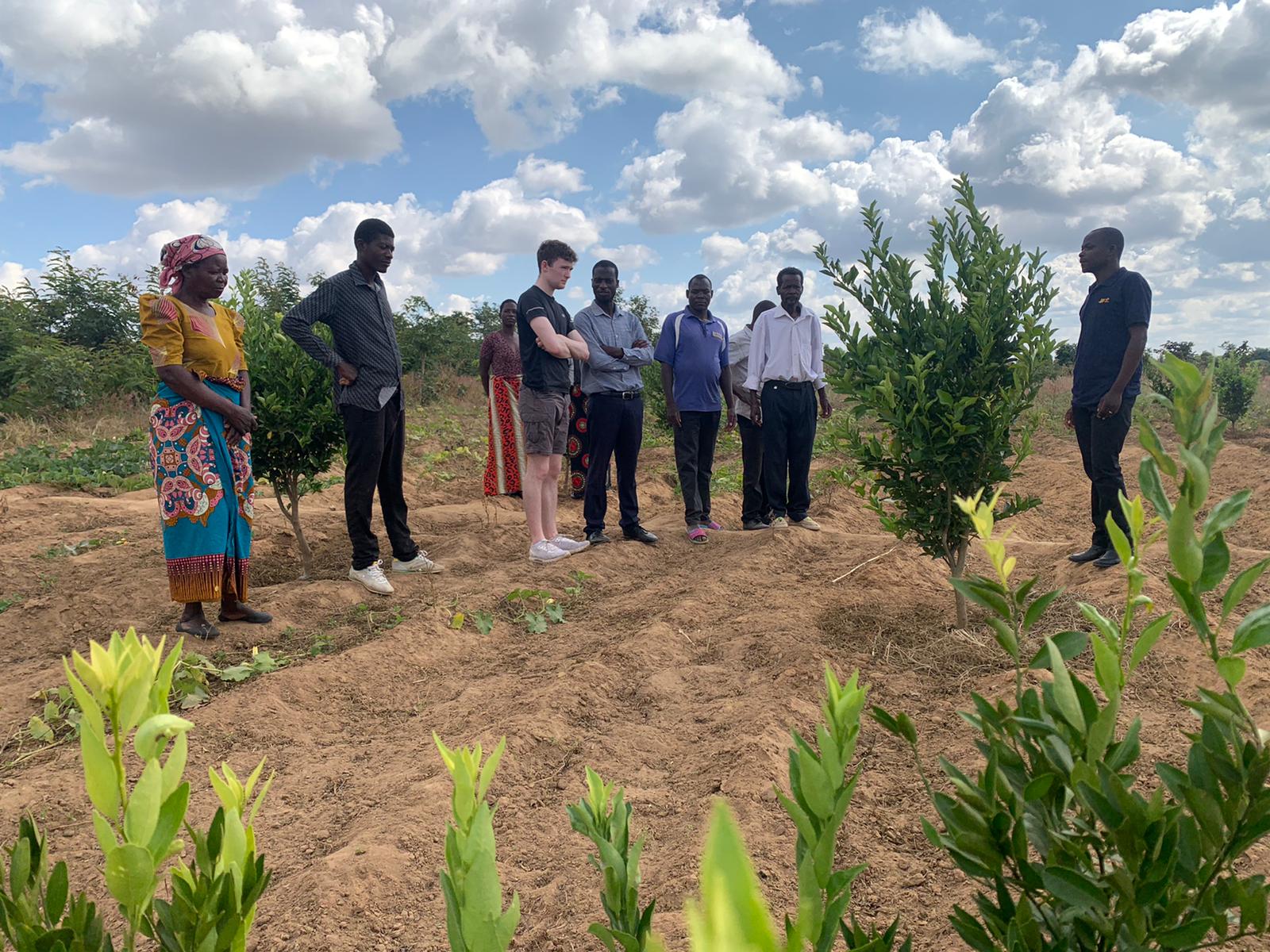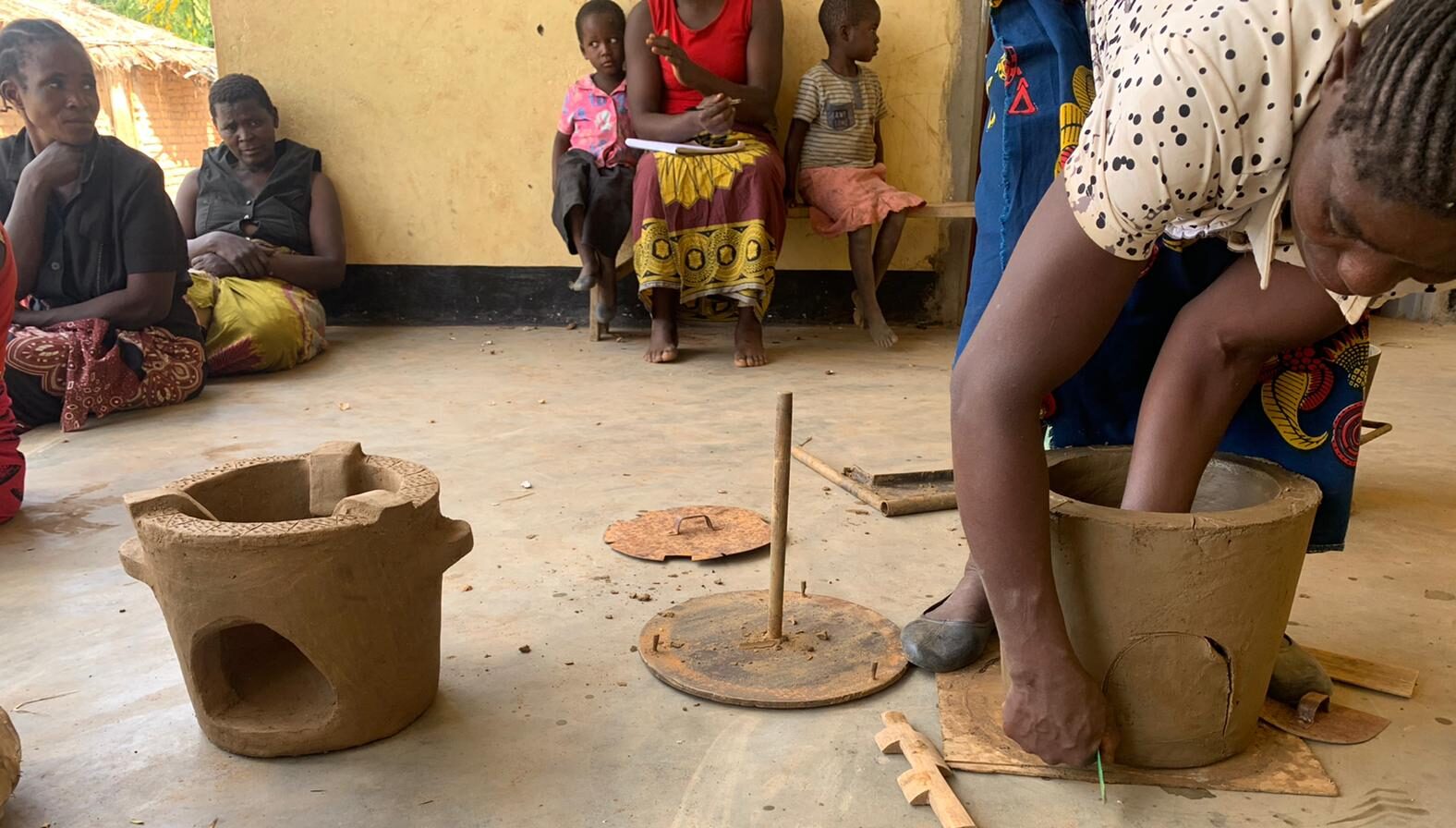
Our collective responsibility to care for our home is becoming increasingly relevant. Yet, the impacts of climate change appear somewhat distant to us in Europe. In Malawi the issue of climate change is real and already severely affecting livelihoods. This was abundantly clear during my 4-week placement with the Jesuit Centre for Ecology and Development (JCED). Their mission is to take a lead in advocacy for ecological justice and empower marginalised people to achieve an improvement in their livelihoods through sustainable agriculture. JCED envision a just, inclusive and sustainable society whereby the community promotes the environment and integrity and dignity for all. Their work to assist and amplify the voices of climate victims in Malawi is now more important than ever as the country faces the harsh effects of climate and biodiversity breakdown.
One of JCED’s longest running and most impressive project is their reforestation campaign. This project has been implemented in two striking ways. Firstly, JCED has worked closely with farming communities to educate them on climate smart methods of agriculture, most notably agroforestry. Secondly, JCED has bolstered the work of a women’s group who manufacture clay stoves used for cooking. As these stoves are up to 60% more efficient at burning wood than open fires, it means these communities don’t have to cut down as many trees. The production and sale of these stoves provides these women with a new stream of income as their agricultural capacity is limited due to climate change.
When I sat down and chatted with this community, they were emboldened to further their sales and marketing strategies for these stoves. Their entrepreneurial endeavour has empowered them both financially and socially. Deforestation has been a persistent problem for Malawi over the last few decades, as wood is the primary fuel source for people in the country. Deforestation is estimated to be responsible for the loss of 33,000 hectares per year, leading to soil erosion, fewer crops, flooding and water scarcity, as well as increased greenhouse gases in the atmosphere. In fact, Malawi is slightly larger than Ireland and Wales combined, yet is losing tree cover the equivalent to the area of Cork and Kerry each year.

Deforestation, in addition to many other factors, have facilitated and exacerbated the consequences of climate change in Malawi. Once food secure areas are now in precarious positions. The small nature of farms restricts the capacity to invest in irrigation, and in turn ensures that these farmers are at the mercy of rain fed production. 90% of the population are dependent on rain-fed agriculture, with 60% of them being food insecure on a year-round-basis. From my observations and discussions with various rural communities’ food insecurity has been an issue they’ve tackled with for many years, however the new threat facing them is water insecurity. Not only does the lack of water amplify food insecurity, but it also has wider reaching consequences for communities in terms of drinking
water, hygiene and livestock health. Despite all the progress made through JCED’s projects, the issue of water halts them making further progress. For instance, north of Malawi in the Horn of Africa, they are experiencing their worst drought in more than 40 years as the last 4 years offered below average rainfall.
JCED’s work does not stop with empowering farmers and women. They have branched out into advocacy and youth engagement. Through research and storytelling, JCED form policy and advocacy positions which is brought forward to government, NGO’s and climate conferences. They strive to connect voices at the bottom of society, with those at the top. During my time with JCED, they began preparations to bring forth research and stories to leaders at COP27, which will be held in Egypt this November.
“[sustainable practices] will live on if people have a sense of belonging. So the first thing that I would do for my long-term plan is to help people identify things that they can do as the owners of the environment so that they are not affecting with the effects of climate change”. Tadala, a member of JCED’s climate justice champions youth movement.
It is vital that the stories of those on the frontlines of climate change are brough back to people in Europe. Our decisions and lifestyles are having a direct impact on the most disadvantaged communities in the global south. Climate change is a justice issue. It is only a matter of time before the climate problems in Malawi become problems for us in Ireland.
The opportunity to work alongside JCED has been an experience I will forever cherish and has gifted me the chance to cast an eye onto the greatest challenge that our species has ever faced. I am incredibly grateful to all at IJI and JCED for facilitating this opportunity and I urge anyone reading this to look into the fantastic work that JCED are undertaking to protect our creation, earth.
Author: Sam Duff, former Belvedere Head Boy

